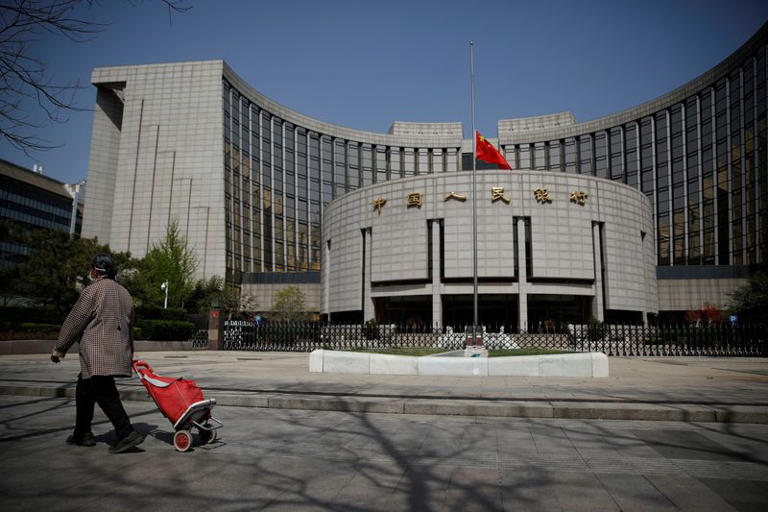The Financial News report provides a critical perspective on the current dynamics within China’s bond market, highlighting concerns raised by both industry sources and experts regarding the implications of financial institutions’ increased investments in Chinese government bonds. This surge in bond purchases, according to the report, is viewed as a form of betting against the Chinese economy and its currency, the yuan.
The backdrop to these concerns stems from recent actions by the People’s Bank of China (PBOC), the country’s central bank, which has expressed unease over the rapid appreciation and potential overheating of the bond market. In response, the PBOC has announced plans to sell treasury bonds as a measure to cool down the bond market rally. This strategic move by the central bank aims not only to stabilize the bond market but also to maintain a normal yield curve that supports broader economic stability and controls financial risks.
The central thesis of the Financial News report revolves around the interpretation that financial institutions, by aggressively snapping up government bonds, are essentially making a bet that interest rates will continue to decrease in the future. This expectation aligns with a strategy that typically involves anticipating lower yields on bonds, which can indirectly exert downward pressure on interest rates and, consequently, on the yuan’s value.
Moreover, the report underscores a perceived consequence of this strategy: it heightens the risk of capital outflows from China. When financial institutions channel substantial funds into government bonds with the expectation of declining interest rates, it implies a lack of confidence in the yuan’s strength and the broader economic outlook. This sentiment could potentially encourage investors to move capital out of the country, seeking safer or more profitable opportunities elsewhere, thereby exacerbating pressures on the yuan’s exchange rate and overall economic stability.
In response to these developments, the PBOC’s proactive stance to maintain a stable and well-functioning bond market is crucial. By signaling its readiness to adjust bond issuance based on market conditions, the central bank aims to temper speculative behaviors that could destabilize financial markets and undermine economic confidence. This approach underscores the delicate balance that Chinese policymakers navigate between fostering economic growth and ensuring financial stability, particularly in the face of evolving global economic conditions and domestic challenges.
Overall, the Financial News report highlights the complexities and risks inherent in China’s bond market dynamics, providing insight into how market participants’ actions and central bank policies intersect to shape the country’s economic landscape.
